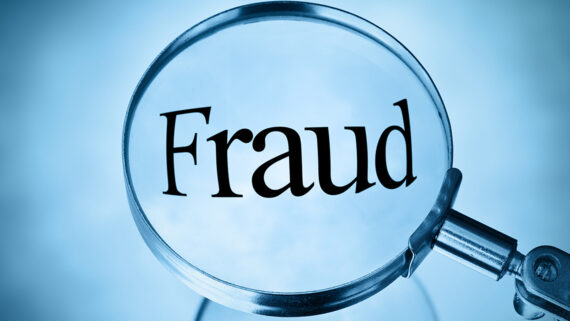An asset freezing can paralyze both your business and personal operations. As much as the order might limit your right of usage and access to your assets, you still have legal rights, which you can exercise. The responsibility to freeze an asset subject to targeted financial sanctions rests with the person or entity that holds the asset, for example the financial institution that holds the funds of a designated person or entity. If you consider that an asset that you directly or indirectly own or control has been frozen in error, you should contact the lawyer experienced lifting on asset freeze in the first instance.
Imposing and Lifting Asset Freeze in Turkey
Asset freezing of individuals is a sanction aimed at depriving criminal organisations of their economic resources. This sanction aim at individuals rather than states. The logic behind this sanction is that it is not merely sufficient to imprison the perpetrators in international criminal organisations, since their wealth can indirectly contribute to the thriving of the organisation and the recruitment of new members. Thus, the freezing of assets aims at forbidding targeted individuals from disposing of their economic resources as a preventive measure. As a consequence of asset freezing, they will be deprived from the necessary means to perform their criminal activities.
Freeze Means
The term freeze means “to prohibit the transfer, conversion, disposition or movement of funds or other assets” (S/RES/1267(1999) UN Security Council Resolution). One should differentiate the concept of “asset freezing” from “asset confiscation”. Confiscation implies that a sentence has been passed by a court whereas the freezing of assets is a preventive measure. The two processes are closely linked, as confiscation is supposed to be the outcome of an asset freezing measure, the same way imprisonment is linked to pre-trial detention and arrest. As it is obvious from its definition, asset freezing represents a true threat to fundamental rights and especially property rights and the free movement of goods.
Administrative and Judicial Asset Freezing
Two different procedures can be distinguished in the area of asset freezing in Turkey. Firstly, an “administrative” procedure, which consists mainly in issuing black lists, was first set up by the Security Council of the UN and was then implemented both at the European and domestic level. Secondly, a “judicial” procedure, specific to Turkey, which does not specifically target terrorism but several offences including terrorism.
Administrative and judicial procedures coexist in Turkish domestic level, raising different issues. The “administrative” procedure is more political and involves primarily the state and the government, whereas the “judicial” procedure is built around judicial authorities (judges and prosecutors). Both of these procedures constitute preventive measures taken prior to any decision being issued by a court or a tribunal, and as such, they call into question a crucial concept in criminal law, the presumption of innocence. Moreover, as can be deduced from the definition of asset freezing, these measures are inclined to infringe upon property rights.
Asset Freezing in Administrative Procedures: Blacklisting
Administrative asset freezing decisions may be taken at several levels.
International Level
Resolutions of the Security Council of the United Nations Article 39 of Chapter VII of the United Nations Charter authorises the Security Council of the United Nations (UNSC) to acknowledge the existence of any threat to peace, breach of peace, or act of aggression. When such a threat is thus defined, the UNSC shall make recommendations, or decide what measures shall be taken to maintain or restore international security.
Terrorism falls within the scope of a threat as defined by Chapter VII of the UN Charter. Therefore, a global strategy in the fight against the financing of terrorism has been developed progressively. To this extent, Resolution 1267 dated October 15 1999 implemented sanctions against the Taliban regime in Afghanistan. One of the sanctions consisted in the freezing of assets and financial resources, directly or indirectly controlled by the Taliban (i.e. funds, goods or properties belonging to or controlled by them). Resolution 1267 also created a Committee to establish a United Nations’ Blacklist at the request of the UNSC. Originally named Committee 1267, its title has been forever changing through numerous resolutions defining its scope of action.
The individuals appearing on the list are subject to asset freezing and travel bans.
The procedure for registration on the UN Blacklist has been progressively consolidated. It now consists in the implementation by states of a procedure sovereignly elaborated by them, through which they submit names to the UNSC Committee. A criminal conviction or a criminal prosecution are not necessary to justify the submission of a name to the Committee. However, states have to gather the elements of proof of association with a terrorist group. To this extent, states are invited to present a memorandum to identify precisely the individuals (in order to prevent possible confusion with homonyms).
The Committee then establishes a set of criteria guiding its decision to put a name on a list. The decision is taken by a consensus of its 15 members.
Resolution 1333 of 2000 later extended the scope of these sanctions to Usama Bin Laden, Al Qaeda, and any natural or legal person suspected of taking part in their terrorist activities. States have to take measures in order to give full effect to the blacklist.
In the wake of the 9/11 attacks, resolution 1373 of September 28 2001 called upon states to implement concerted actions in order to prevent financial assistance, or any type of assistance, to terrorists. The UNSC asked each state to establish its own blacklist of organisations and persons depicted as “terrorist”. States should also “criminalize the wilful provision or collection (…) of funds by their nationals or in their territories with the intention that the funds should be used (…) in order to carry out terrorist acts.” Such measures were also extended to Daesh, also known as ISIL, by Resolution 2253 of December 17 2015. This legal framework has led to the creation of European anti-terrorist lists.
Regional Level: The Anti-terrorist Lists of the European Union
There are two different types of European lists: lists implementing UN Resolutions and autonomous European lists. Even though these two types refer to numerous different lists (due to their update and the many annexes needed for their implementation), the interests of clarity require referral to the two types as two lists.
The Lists Implementing UN Resolutions
The Council of the European Union has adopted several measures in order to comply with Resolution 1333 and the subsequent resolutions of the UNSC. Amongst these measures, Common Position 2002/402 CFSP and European regulation 881/2002, implement some of these sanctions including the freezing of assets against individuals identified on the UN blacklist, i.e. individuals linked to Usama Bin Laden, Al Qaeda, and to the Taliban.
The European Commission has been given the power to execute and follow up those sanctions. In fact, the Commission has the capacity to update the list, on the basis of information given either by the UNSC or the 1267 Committee. It is also possible for the Commission to change annex II of the list, dedicated to national authorities competent to implement these sanctions. This list is a simple transcription of the UN lists.
The Autonomous EU Lists
In the aftermath of the 9/11 attacks, the Council of the European Union, following the wishes exposed in Resolution 1373(2001), adopted a common position 2001/930 CFSP of December 27 2001. In that position, “the direct or indirect provision of funds aimed at perpetrating terrorist acts” was criminalised.
A second common position 2001/931 sets up a European procedure to put an individual on a blacklist and update it. The European Commission is in charge of executing the order to freeze the assets and economic resources of the individuals mentioned on the list. It has to be noted that the action of the European Commission in this matter has to fall under its scope of action as defined by the European Treaties.
The Council of the European Union, acting unanimously, is authorised by European regulation 2580/2001 to establish, review and modify this list. Therefore, it is modified on a six-monthly basis.
These sanctions have been implemented on the basis of articles 60, 301 and 308. Since the Treaty of Lisbon entered into force, these measures have been drafted in article 215 of the Treaty on the Functioning of the European Union (TFUE). Indeed, this article enables a decision adopted in virtue of chapter 2 title V of the Treaty on the European Union (TUE) to authorise the Council of the European Union to adopt restrictive measures towards natural or legal persons, groups or non-state actors. Moreover, it acknowledges that the dispositions thus taken carry all necessary judicial guarantees.
Since 2009, the procedure through which states place names on the autonomous European list falls under state cooperation as it is implemented by title VI of the TUE. Contrary to the UN procedure, the autonomous subscription procedure contains judicial guarantees. Indeed, decisions taken by competent authorities, meaning judicial authorities or authorities assimilated to the judiciary (i.e. authorities empowered to sanction) justify the addition of a name to the list. The judicial procedure is therefore needed both at the stage of criminal investigations, criminal prosecution and judicial sentencing regarding a terrorist act, the attempt to perform a terrorist act, or participation in a terrorist association, group or entity. Elements of proof must be of a serious and credible nature. Presence on the UN Blacklist is not an obstacle to registration on 8 Council of the European Union, Common Position of 27 December 2001 combating terrorism, 2001/930/CFSP 8 the autonomous European list. States must also expose the reasons justifying their subscription request. Such motivations are subject to control by the Common position 931/2001 group.
The most widely used type of EU sanction and of relevance to funds and financial service providers (FMCs) is the asset freeze. Notably, there are separate asset freeze regulations for each sanctions regime and the EU maintains a consolidated list of persons subject to any EU asset freeze, i.e., where all funds and economic resources of the listed person that belong to, are owned, held or controlled by that person are required to be frozen. In addition, funds or economic resources, must not be made available directly or indirectly, to, or for the benefit of, the listed persons.
In 2022, the EU has adopted four sanctions packages in response to the developing situation in Ukraine (2022 Sanctions Packages). Each of the 2022 Sanctions Packages includes one or more directly effective EU Regulations which introduce new, or amend existing (in place since 2014), EU sanctions regimes.
The 2022 Sanctions Packages include several restrictive measures of relevance to funds and fund management companies (FMCs) including:
Extended Asset Freeze
These measures extend the asset freeze imposed in 2014 in response to the situation in Crimea to include over 700 individuals including members of the Russian Government, businesspeople and oligarchs who financially or materially support the military operations in the Ukraine and 53 entities. The effect of these measures is to freeze the assets of the specified individuals and entities and prohibit the making of funds and economic resources available to them; and
Extended Capital Markets Restrictions
These measures extend the restrictions on access to EU capital markets for certain financial institutions imposed in 2014 in response to the situation in Crimea and include prohibitions on dealing in any newly issued transferable securities and money market instruments issued by 23 specified entities and any entity majority owned or acting on behalf or at the direction of one of the specified entities.
EU sanctions also target specific sectors in certain countries, e.g., sanctions restricting access to the EU’s capital markets for certain Russian state-owned banks and companies active in the energy and defence sectors, and their non-EU subsidiaries and any other entity (EU or non-EU) acting on their behalf or at their direction. Importantly, these sanctions prohibit dealings, directly or indirectly, with transferable securities and money market instruments issued by these targeted entities, and making, or being part of any arrangement to make, certain new loans or credit to these entities or to materially amend existing loans or credit.
Application of EU Sanctions
EU sanctions are applicable when there is EU jurisdiction (i.e., a nexus linking a certain activity to the EU). As such EU Member State nationals and companies or other entities incorporated in an EU Member State must comply with EU sanctions. Non-EU companies and persons may also be subject to EU sanctions depending on their activities in the EU and their connection to any activities restricted by sanctions.
Failure to comply with EU sanctions can expose companies and individuals to fines and/or imprisonment. Fund Management Companies (FMCs) must, therefore, carefully consider and screen investors, investments, counterparties and their ultimate beneficial owners against applicable sanctions lists to establish that they are not under sanction.
National Level: Administrative Measures
At Turkish national level, it is also possible to take measures to freeze the assets of an individual. Asset freezing measures in Turkey can be taken by national administrative authorities. The Turkish Statute numbered 6415 on Prevention of the Financing of Terrorism allows the Turkish Minister of the Economy and the Turkish Minister of the Interior, to jointly decide on the implementation of an asset freezing measure. These measures apply either to persons who tried to commit or aid and abet terrorist acts, or to persons, who, due to their positions, had the possibility to commit those acts without the need to prove that they actually did.
The Law numbered 6415 has been issued under the scope of an effectively combat against terrorism and the financing of terrorism for the purpose of establishing principles and procedures regarding the implementation of the International Convention for the Suppression of the Financing of Terrorism and anti-terror and CFT-related decisions of UNSC, regulating the TF offence, and freezing of assets for the prevention of TF. The Regulation on Principles and Procedures of the Implementation of the Law on the Prevention of the Financing of Terrorism and MASAK General Communiqué 12 were prepared for demonstrating the implementation of this Law. Under the mentioned legal framework and in accordance with articles 5 and 6 of the Law 6415, assets of individuals, entities or organisations may be frozen based on the requests of foreign countries depending on UNSC Resolution 1267 or 1373.
The Turkish Ministry of Treasury and Finance froze the assets of over 770 individuals and organizations in 24’th December 2021 on the grounds that they were providing terrorist financing, according to a ruling published in Turkey’s Official Gazette.
The decision was made under the authority of law 6415 for the prevention of financing terrorism. The individuals and organizations are accused on the existence of reasonable grounds that they have committed the offense of collecting or providing funds to finance terrorism. Those whose assets have been frozen can appeal the decision to the Ankara Heavy Penal Court.
National Level: Judicial Asset Freezing
In Turkish law, decision on seizure of any assets can only be taken by a judge, and in case where delay is prejudicial, by the Public Prosecutor temporarily. A seizure decision taken by the Public Prosecutor must be approved by a judge within 24 hours. Search in the Turkish law is performed in accordance with article 116 of the Criminal Procedure Code. The procedure for seizure of assets is regulated under articles 127 and 128 of the Criminal Procedure Code. For seizure of immovable within the framework of article 128 of the Criminal Procedure Code, the offence must be contained in the offence types stated in this article. Some immovable and particularly vehicles may be annotated by the Public Prosecutor as nonsalable and non-transferable. In Turkish law, finalised conviction judgment is sought for confiscation. Except for the articles that constitute offence in themselves, confiscation is not possible without finalised conviction judgment. Confiscation is executed according to articles 54 and 55 of the Turkish Criminal Code and provisions in the special laws.
In order to seek the restraint, seizure and forfeiture/confiscation of criminal proceeds from Turkey, the following steps should be followed:
Identification of the Asset
The first step is to identify the assets with relevant information such as name, type and holder of assets including companies, businesses, trust and family members.
In order to seize movables and immovable in the Turkish law, it is necessary for the assets requested to be seized to be determined initially. Next, there should be concrete evidence indicating that such assets are acquired from the offence subject to the investigation. An investigation is commenced if the Public Prosecutor is satisfied of existence of sufficient evidence upon the notification of institutions like Department of Anti-Smuggling and Organised Crimes of the Security General Directorate of the Ministry of Interior that was established particularly to investigate financial offences and Financial Crimes Investigation Board (MASAK) in line with the evidence they obtain.
Within the scope of the investigation in question, the Public Prosecutor may request a decision from the court requesting seizure of the assets considered to be acquired from offence. The entire process depends on the commencement of an investigation by the Public Prosecutor. The Public Prosecutor may request, within the scope of the investigation, information and documents from all public and private institutions regarding assets. Not providing these information and documents constitutes offence.
Financial Crimes Investigation Board (MASAK) in Turkey accesses the relevant information before commencement of an investigation. MASAK can obtain information not only from banks regarding money flow but also from many institutions in which assets like Title Deeds registries or Stock Exchange Market equity securities are registered. MASAK can preserve this information in an information pool created by it. After obtaining this information, MASAK must apply to the Public Prosecutor’s Office for execution of seizure proceedings. MASAK can also obtain information from relevant countries through bilateral agreements and Memorandum of Understanding it concluded with other countries.
International Judicial Cooperation in Asset Freezing
Apart from this administrative procedure, the judicial authorities of each States have been given the means to implement international asset freezing measures, in order to prevent cross-border organised crime (and not only terrorism).
International asset freezing was possible for a long time. The mutual assistance system consists in the sending of criminal assistance requests between judicial authorities. Indeed, several standards have been implemented since 1959 within the Council of Europe. More particularly, as regards asset freezing requests, the 1990 Convention on Laundering, Search, Seizure and Confiscation of the Proceeds of Crime stated that “at the request of another Party which has instituted criminal proceedings or proceedings for the purpose of confiscation, a Party shall take the necessary provisional measures, such as freezing or seizing, to prevent any dealing in, transfer or disposal of property which, at a later stage, may be the subject of a request for confiscation or which might be such as to satisfy the request” (art. 11).
Mutual Legal Assistances regarding detection, seizure and confiscation of assets are executed in Turkey within the framework of multilateral conventions like European Convention on Mutual Assistance in Criminal Matters, Convention on Laundering, Search, Seizure and Confiscation of the Proceeds from Crime, United Nations Convention against Corruption and bilateral agreements.
In the judicial assistance requests regarding seizure and confiscation, Turkey seeks that the offence indicated in the request is in compliance with the dual criminality principle in terms of both countries.
The assets seized as a result of the legal assistance, requested to be confiscated according to the foreign court decision are returned in line with the negotiations to be carried out with the requesting country if the matter of return of the assets has already been stated in the letter of request.
The Central Agency / Authority for the international request of freezing assets in Turkey is the General Directorate of International Law and Foreign Relations of the Ministry of Justice.
Protection of Fundamental Rights
The system currently in place regarding the freezing of assets does not give satisfaction as far as the protection of human rights and freedoms is concerned. It is important to guarantee a sufficient protection of fundamental rights. In the case of the freezing of assets, the scales are clearly tipped in favour of efficiency. The comparison between judicial and administrative freezing of assets shows a degree of difference in protecting individual rights. Whereas individuals facing the judicial freezing of assets are protected by the guarantees provided in judicial procedures, the ones being targeted by administrative sanctions are denied the same protection.
Lifting the freezing of assets
Article 14 (6) of the Regulation on the Procedures and Principles regarding the Implementation of Law on the Prevention of the Financing of Terrorism contains the following provision: “The lifting asset freezere request related to misapplied asset-freezing decisions of Presidency due to name similarity, false or missing identity information and similar grounds shall be made to MASAK in writing with the justification by annexing relevant documents, if any. In cases where MASAK approves the request, lifting asset freze shall be applied by notifying institutions and organizations, and natural and legal persons stated in this Article without delay.”
Also, within this scope, The MASAK General Communique (No:12) contains the following provision: “2.5. Uncertain Situations in Execution of Freezing Action On the other hand, if the person whose assets are frozen claims that she/he is not the person listed by the United Nations Security Council (UNSC) Resolution, and an erroneous freezing action has been taken due to name resemblance, incorrect or deficient identity information and similar reasons, the objection should be made to MASAK in writing together with its grounds and by adding relevant documents, if any. If MASAK approves, the situation shall be informed to liable parties immediately and the erroneous freezing action shall be corrected.”
Contact an Asset Freezing Defence Lawyer
The freezing of assets is a serious step. It requires the right strategy as well as intelligent legal argument and decisive action in order to secure the right outcome. We understand that the loss of access to funds can be highly disruptive and, in some cases catastrophic – financially as well as reputationally. Yet we recognise that the need for swift action should be tempered by a careful and considered strategy.
If you have would like to discuss any of the issues mentioned above, feel free to contact one of our specialist asset freezing and forfeiture lawyers.
 English
English Türkçe
Türkçe Français
Français Deutsch
Deutsch






Comments
No comments yet.